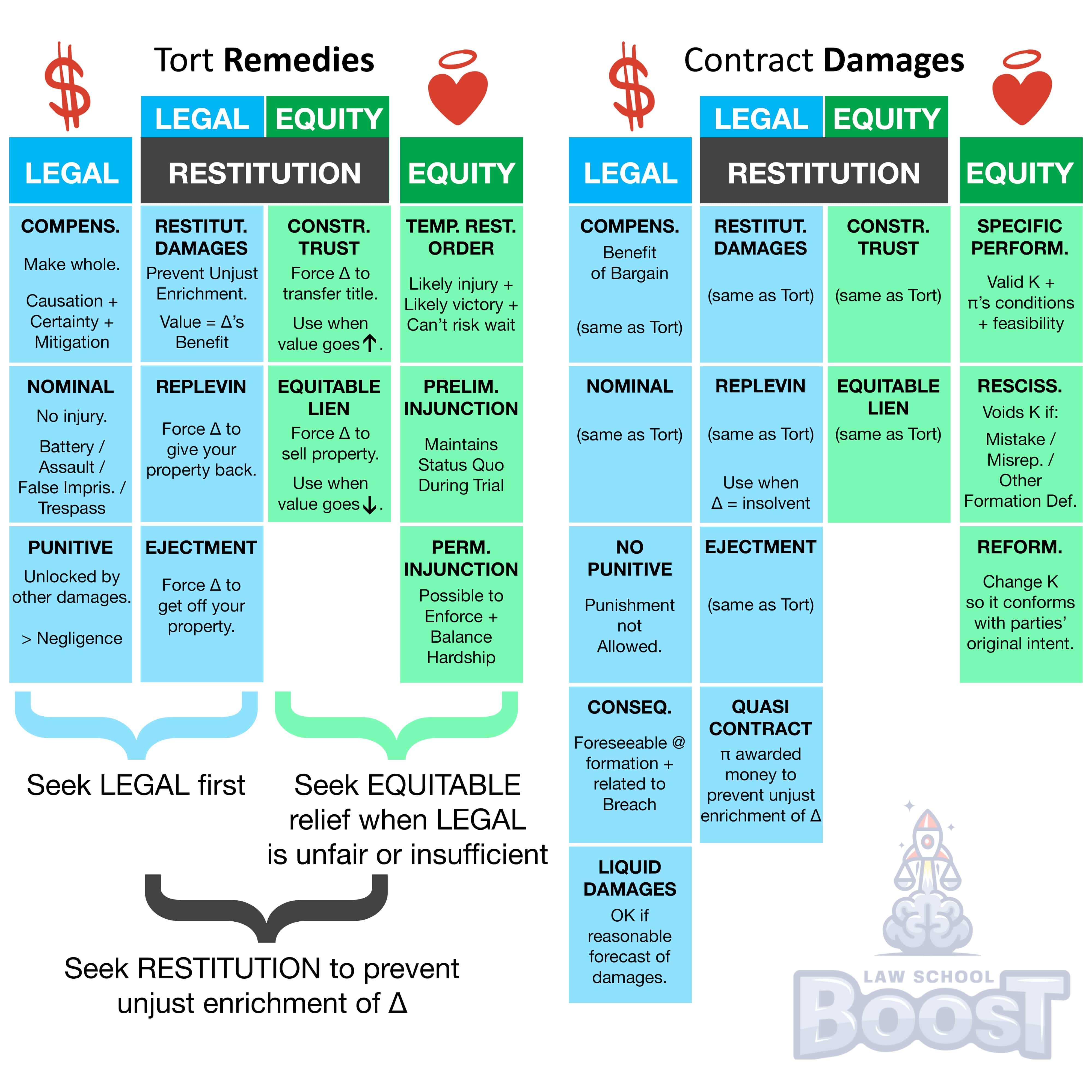🏥
Remedies • Tort - Equitable Remedies
REM#035
Legal Definition
Where the court issues an injunction erroneously, a party must nonetheless comply with the terms and later seek to have it modified or resolved in court. Where a party fails to comply, they lose standing to later challenge it.
Plain English Explanation
The collateral bar rule is a legal principle that says if a court gives an order (even if that order is wrong), everyone has to follow it. If someone thinks the order is wrong, they can't just ignore it. Instead, they have to follow the order and then go back to court to argue that it should be changed or removed. If someone doesn't follow the order, they can't later come back and say the order was wrong in the first place. The rule exists to make sure that people respect court orders and to keep order in the legal system.
Hypothetical
Hypo 1: Bob plays loud music every night, disturbing Sam's sleep. Sam goes to court and gets an order telling Bob to stop playing loud music after 9 PM. However, the court mistakenly says Bob can't play music at all. Bob thinks this is unfair and continues to play music during the day. When he's taken to court for breaking the order, he tries to argue that the order was wrong. Result: Because of the collateral bar rule, even though Bob should be able to play music until 9 PM, he must stop playing music until he properly addresses the court's erroneous order and gets it changed.
Visual Aids

Related Concepts
What are equitable remedies in tort?
What are the defenses to a suit seeking injunctive relief?
What is a preliminary injunction and how is it issued?
What is a temporary restraining order ("TRO") and what is required to get one?
What is contempt?
What parties are bound by an injunction?
When assessing a permanent injunction, how do courts balance hardships?
When assessing defenses to a lawsuit seeking injunctive relief, when are unclean hands applicable?
When assessing defenses to a lawsuit seeking injunctive relief, when is impossibility applicable?
When assessing defenses to a lawsuit seeking injunctive relief, when is laches applicable?
When deciding on a permanent injunction, when may ejectment be inadequate?
When deciding on applying a permanent injunction, when may money damages be inadequate?
When may replevin be inadequate as a remedy and, instead, a court will opt for a permanent injunction?
When will a court issue a permanent injunction?


